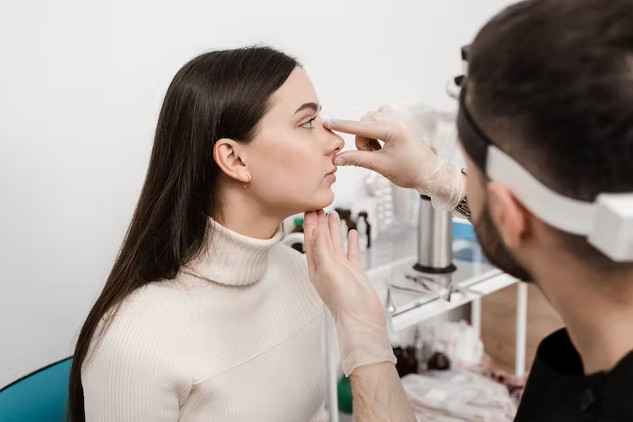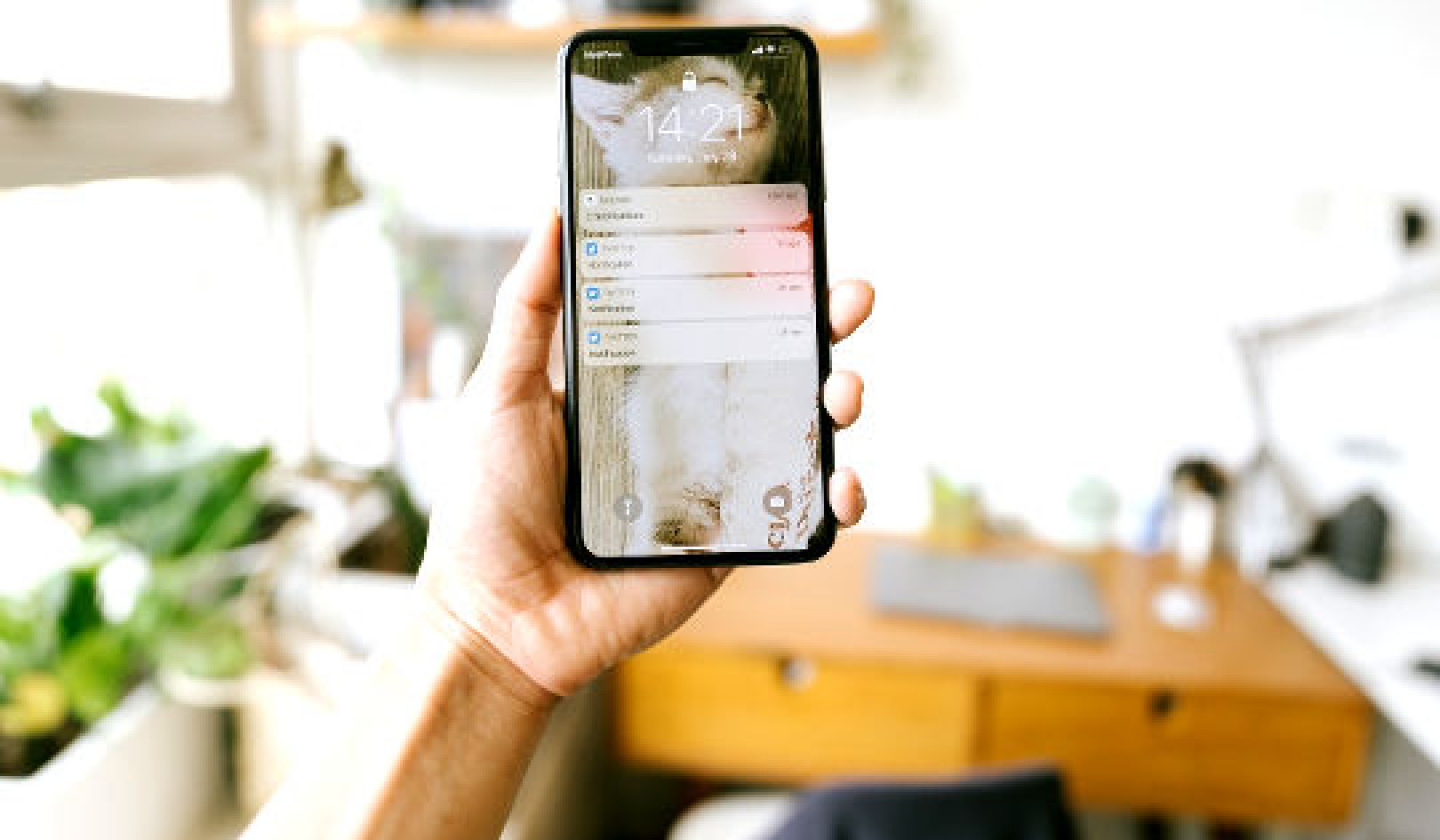
Many hope having cosmetic surgery will bring real mental health improvements. Oleksandr Berezko/ Shutterstock
Demand for cosmetic procedures is higher than ever. From breast augmentations to “tweakments” such as lip fillers and Botox, more and more people around the world each year are undergoing procedures to change how they look.
There are many reasons why cosmetic procedures may be on the rise, from falling costs and lower stigma to social media and Instagram filters.
But a major reason behind the decision to undergo cosmetic procedures remains a desire to improve body image – the way we think and feel about our bodies. Research also shows that people who have low self-esteem or who have been teased about their appearance are more likely to have cosmetic surgery.
Many people who have cosmetic surgery expect it will bring mental health improvements. But does it actually? Unfortunately, the answer to this question isn’t clear-cut – and the outcome depends on many factors, including some that are outside our control.
Body image improvements
A number of studies have found that cosmetic surgery patients do experience improvements in their body image following a cosmetic procedure.
For example, one study showed that participants who’d had Botox felt they were more attractive, were less self-conscious and felt more satisfied with their appearance up to three months later.
Cosmetic surgery may also improve feelings about the specific feature that was altered. One study of women who’d undergone breast augmentation found they generally reported greater satisfaction with breast appearance up to four years post-surgery.
Another study of people who’d had rhinoplasty (what’s often called “a nose job”) found they were generally satisfied with the appearance of their nose several months afterwards – and were more satisfied with their face’s overall appearance, too.
These body image improvements aren’t short lived either, with some studies showing improvements enduring even five years post-surgery.
Other mental health outcomes
The effect that cosmetic surgery has on other psychological outcomes is less clear, however.
Some studies looking at the impact of cosmetic surgery on self-esteem – our overall sense of worth or value – have shown cosmetic procedures only improve it in the short term.
But other studies have found cosmetic surgery doesn’t improve self-esteem at all. This is particularly true when researchers look at things in the long-term, finding that any improvements in self-esteem immediately after a procedure have had faded after several years.
Researchers have also looked at the relationship between cosmetic surgery and symptoms of depression. For example, a study of people who’d had rhinoplasty found that while some reported lower symptoms of depression post-surgery, most showed no change – or even a worsening of symptoms.
Cosmetic surgery could worsen symptoms of depression in some cases. Rabizo Anatolii/ Shutterstock
A separate study of Norwegian adolescents also found that symptoms of depression and eating problems worsened in those who’d had cosmetic surgery compared to those who hadn’t. Even patients with little to no depressive symptoms don’t report experiencing a boost in their psychological wellbeing after cosmetic surgery.
In other words, there’s a risk cosmetic surgery may worsen existing mental health problems for some people. This is especially concerning as some research shows people who seek out cosmetic surgeries are more likely to have experienced mental health problems compared to the general population.
What affects the outcome
Many factors can determine what outcome you might experience after having a cosmetic procedure.
One of these is the degree of post-operative complications. A study of women who’d undergone breast augmentation found that those who’d experienced post-operative complications – such as leaking implants and infections – had smaller improvements in body image following surgery. Healing time may also be important, with studies finding patients who took a long time to heal often show only small improvements in wellbeing.
Research has also found that people with symptoms of body dysmorphic disorder – a preoccupation or obsession with some aspect of appearance – don’t see improvements to psychological wellbeing after surgery. Likewise, patients who are experiencing high levels of psychological distress – including severe symptoms of depression and anxiety – may not experience any benefit from cosmetic surgery.
Relationship factors can also affect whether cosmetic surgery is beneficial to your wellbeing. For example, people who are motivated to have a procedure because they think it will save their relationship often report poorer psychological outcomes. The same may also be true when partners disagree on the need to have a procedure.
The decision to undergo cosmetic surgery is not to be taken lightly. Any procedure – even minimally invasive ones – can come with a risk of complications. If you’re considering one, it’s important not to rush into anything.
The NHS has some very good questions to ask yourself before having a cosmetic procedure, such as why you want to have a procedure and whether you want the procedure for yourself or to please someone else.
It’s also important to do your research, thinking not only about the costs, but also the impact any procedure might have on those around you. Find out as much as you can about the procedure you want, talk to experts, and – if you do decide do go ahead – make sure you choose a qualified practitioner.![]()
Viren Swami, Professor of Social Psychology, Anglia Ruskin University
This article is republished from The Conversation under a Creative Commons license. Read the original article.
Related Books:
The Body Keeps the Score: Brain Mind and Body in the Healing of Trauma
by Bessel van der Kolk
This book explores the connections between trauma and physical and mental health, offering insights and strategies for healing and recovery.
Click for more info or to order
Breath: The New Science of a Lost Art
by James Nestor
This book explores the science and practice of breathing, offering insights and techniques for improving physical and mental health.
Click for more info or to order
The Plant Paradox: The Hidden Dangers in "Healthy" Foods That Cause Disease and Weight Gain
by Steven R. Gundry
This book explores the links between diet, health, and disease, offering insights and strategies for improving overall health and wellness.
Click for more info or to order
The Immunity Code: The New Paradigm for Real Health and Radical Anti-Aging
by Joel Greene
This book offers a new perspective on health and immunity, drawing on principles of epigenetics and offering insights and strategies for optimizing health and aging.
Click for more info or to order
The Complete Guide to Fasting: Heal Your Body Through Intermittent, Alternate-Day, and Extended Fasting
by Dr. Jason Fung and Jimmy Moore
This book explores the science and practice of fasting offering insights and strategies for improving overall health and wellness.



























